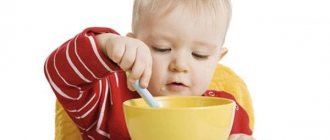The ages of 15 to 18 can play an important role in helping your teen mature and acquire the skills needed to become a responsible adult.
However, there's a good chance your 15-year-old will think he's now ready to take on the world. And he may insist that he already knows everything. This know-it-all attitude with a hint of rebellion may be normal for 15-year-olds.
Understanding your teen's development can be important to successfully parenting through adolescence.
Psychological development of adolescents
Most adolescent problems are a consequence of puberty, which can provoke various psychophysiological and mental abnormalities. Because of this, teenagers suffer from the following problems:
- emotional instability;
- increased excitability;
- causeless anxiety;
- mood swings;
- depression;
- conflict.
An exacerbation of pathological manifestations associated with the occurrence of mental illnesses is likely. Scientists believe that the likelihood of developing schizophrenia in adolescents increases several times.
But adolescence also has positive sides. The child becomes more independent and independent. His scope of activity is gradually increasing. He begins to treat himself consciously and defends his rights before other people.
What it is?
At the beginning of the last century, the word “teenager” was almost never used; people usually said “youth.” However, after the revolution, they tried not to utter this word because it reeked of the bygone past. Now “youth” is associated with religion, the speeches of priests, and in everyday life the “teenager” and the English synonym “teenager” are used.
The scientific concept of “adolescence” appeared at the end of the 19th century. This happened largely due to the manifestation of interest in the problems of youth on the part of writers, philosophers, and thinkers of that time. For example, Dostoevsky in his novel “The Adolescent” describes the problems characteristic of youth no worse than psychologists do.
What is it? According to scientific definition, this is a specific age period in a person’s life. It is a transition between childhood and adulthood. Accordingly, it is characterized by many changes occurring both in physiology and in human consciousness.
The emergence of a sense of adulthood and the reaction of emancipation
Studying the features of the development of this feeling, Elkonin D.B. identified two types of “adulthood”:
- Objective. The child is truly ready to live in an adult society.
- Subjective). A teenager simply feels like an adult.
Types of objective adulthood:
- Socio-moral. Manifested by emancipation, participation in family affairs.
- Intelligent. The teenager is engaged in self-development and self-education.
- Romantic. Manifests itself in romantic relationships with the opposite sex.
- External. A teenager tries to have an “adult” appearance and behavior. The child follows fashion, may start smoking and use obscene language in communication.
Signs of subjective adulthood:
- the teenager’s desire to be perceived as an adult;
- fencing off certain areas of life from others, dissatisfaction when others try to check his work for quality;
- individual behavior and personal thoughts advocated before others.
Experiencing adulthood, children:
- are critical of elders;
- become disillusioned with the adult world;
- afraid of the world around them;
- feel loneliness after realizing their inner world and poor relationships with loved ones;
- They expect adults to treat them as equals.
To make this period as easy as possible, experts in the psychology of adolescence advise parents to be more loyal to the child’s sense of adulthood.
Content:
- Age characteristics at 14-15 years old Development of girls
- Features of the development of boys
- How much should a fourteen-year-old child sleep and eat?
- Emotional development
- Bad habits
Reaction of grouping with peers
Teenagers instinctively group with peers. Teen groups are:
- Same-sex (most often male). In such groups there is a permanent leader, each member has his own strictly fixed role. The leader maintains his position with the help of a strong but not very smart assistant. Same-sex groups often have “their own territory,” rarely accept newcomers, and use their own “language.”
- Mixed. The leader is selected according to the required situation. Group members may constantly change. Nothing is required from participants.
In closed teenage institutions (boarding schools, sports camps), grouping is very pronounced. This can provoke “undermining” of the established regime.
What is happening in the psychology of teenagers? Main features
The psychological characteristics of adolescents are inextricably linked with the changes occurring in their body and mind. This is an extremely controversial time, filled with rapidly occurring changes that yesterday’s children cannot always cope with.
The main features of psychology at this age correlate with adulthood. This is the tendency towards her and her feeling. It is generally accepted that younger teenagers tend to mature. For those who are older, accordingly, a feeling, a sense of their own adulthood, is characteristic.
It is what a teenager feels that determines his behavior, manner of speaking, and actions.
The emergence of interest in the opposite sex
10–17 years is the pubertal period of child development. At the same time, puberty begins. Due to physiological changes, the teenager begins to experience new emotions and feelings. He begins to think about his gender. A child tries to express his male or female individuality - this is a natural process. At this time, parents need to give their son or daughter a little freedom in self-expression - this will significantly reduce the likelihood of conflicts.
Interest in the opposite sex is observed as early as 10–14 years of age. This is manifested by increased attention to one’s appearance and the desire to stand out. Parents can already teach their child about the importance of personal hygiene and exercise.
At this age, teenagers experience their first love. Girls and boys move from friendly relationships to romantic ones. Many people begin to be sexually active. It is extremely important for parents to explain that early sexual activity can be dangerous.
Tips for parents
Parents often think that adolescence should proceed with minimal interference on their part, arguing that otherwise the child will not be able to develop his own point of view on the world around him and prepare for life in it. This statement is extremely dangerous for your children and yourself. If you want them to grow up to be full-fledged individuals, grateful for a good upbringing. Parental intervention in the process of a teenager’s development as a person is necessary, the main thing is not to overstep the boundaries of mutual trust.
- Communication with father. During puberty, the father plays a very important role for a boy. It is the dad who has the necessary authority and experience to explain to the boy what is happening to him at this stage and why it is important. Thus, when communicating with his father, the boy will not only feel more confident in the process of all the changes happening to him, but will also adopt the social model of his father, a wise man who can always discuss any problem with his son.
- Find your child a hobby. This should be done even before puberty, so that at key moments of physical and psychological development the boy always has the opportunity to release excess energy in a favorable direction, and not into crime or addiction to a computer or drugs. A correctly and timely chosen sports section will help your child not only lead a healthier lifestyle, but will also shape his body and spirit in such a way that he will be grateful to you for a long time.
- Determine the level of freedom for the boy in time. One of the key parameters in becoming a real man is willpower and the ability to make decisions independently. If you timely delimit for yourself those areas of life in which you will not interfere, and provide your child with the opportunity to solve certain problems himself, then you will help him develop the above-mentioned masculine qualities. For example, when giving pocket money to your child, decide whether you will control where he spends it or not. Discuss with your family whether your child can bring guests home and under what conditions, etc. The main thing is not to forget that trust is very easy to destroy, and by promising a child something, you thereby enter into a trust agreement with him, which you undertake to fulfill. By violating it, do not be surprised that the child’s attitude towards you changes for the worse.
Development of self-knowledge
The teenager begins to take an interest in himself, his abilities, evaluates and compares himself with others, and tries to understand his feelings. Taking into account the development of self-awareness, and trying to take a more advantageous position among peers, the teenager strives for self-education. He wants to have more positive qualities than negative ones. But little life experience and an unformed worldview provoke the development in a teenager of contradictions between the desire for self-education and the inability to realize it.
The child becomes aware of himself as a person in 2 stages. At first he realizes that he is different from his peers and belongs to the adult world. He can:
- imitate adults
- be dependent on peers.
At a new stage, a teenager:
- understands that he is no longer a child;
- gradually understands his personal characteristics;
- less dependent on peers.
The last point is extremely important. If peers force a teenager to do something against his wishes, he will be able to refuse them.
An important place in the development of adolescent self-awareness is occupied by the idea of one’s body image, as well as comparison of oneself with generally accepted standards of femininity or masculinity. Against this background, boys can do strength training, and girls can do gymnastics and dancing.
In the motivational aspect and behavior of a teenager, opposing aspirations are manifested:
- To be different from everyone else, especially when communicating with parents.
- Imitate a group of peers and follow fashion trends.
Self-awareness and the formation of the Self-image are closely related to the creation of the image of the Other. In most cases, this “Other” becomes a peer, communication with whom is extremely important for a growing child. This feature can specifically manifest itself:
- A cognitively simple teenager who superficially analyzes the inner world, identifies himself with his peers and emphasizes the similarities between himself and them.
- A cognitively complex teenager tries to understand the essence of a person, identifies himself only with certain peers and emphasizes his distinctive features.
Identifying with peers is normal and helps shape the “I-image” of every teenager. At the age of 13–14 years, this image loses its stability and integrity. The child feels this extremely acutely. To stop copying the behavior of others, an adult uses self-knowledge and introspection, while in a teenager these qualities are still developing. Because of this, the child experiences severe stress, which leads to the following problems:
- inappropriate behavior;
- decreased self-esteem;
- unstable development of the “I-image”.
Adults are obliged to help a teenager survive this difficult moment, to create optimal conditions for proper self-knowledge.
Other milestones
For many teenagers, 15 years old is the age at which they receive driver's education. Getting a study permit can be a big deal. And, of course, this is a great responsibility.
Make sure your teen is willing to follow the rules of the road before you allow him to drive. If he can't be responsible when it comes to chores or homework, he may be showing you that he's not yet ready to take on the responsibility of driving.
Not all 15-year-olds are ready to drive. So think carefully about whether your child is emotionally and socially mature enough to get behind the wheel.
How does a teenager feel about his appearance?
At the time of puberty and increased hormonal activity, adolescents react extremely aggressively to any criticism about their appearance. Words that are offensive to them can cause temporary teenage complexes, which often manifest themselves in adulthood. It is a parent's duty to protect the child from such problems independently or with the help of a qualified psychologist.
Ignoring the problem of the influence of a teenager’s appearance on his mental health can be extremely deplorable. Such children become addicted to alcoholic beverages and drugs, enter into intimate contact with various partners, and use many other immoral methods to assert themselves among others.
“Offended” children become problematic. They can close themselves off from the whole world and lead an antisocial life, or vice versa, they throw tantrums and have rows with adults. The main task of these actions is to assert oneself and gain recognition from adults.
A child who experiences complexes because of his appearance will:
- wear baggy clothes;
- cover your mouth while laughing;
- hide your face under your hair;
- look away from the interlocutor;
- have an “unattainable” ideal of beauty;
- doubt your abilities;
- consider yourself unworthy of love;
- have difficulty expressing yourself in front of strangers;
- Avoid cameras or be photographed frequently.
The first helpers in getting rid of dissatisfaction with one's own appearance are parents. They are obliged to support their children during age-related changes, to listen to their opinion when solving family problems.
Girls worry more about their appearance than boys, so mothers need to help their daughters choose a new style, beautiful hairstyle, and cosmetics. If this does not help, you can use the help of a psychologist - he will help raise your self-esteem.
You were born in 2006 or 2007
2006 - March 29. The first total eclipse of the sun in the 21st century could be observed in Russia. 24 August. Scientists have stripped Pluto of its planetary status. This decision was made at the congress of the International Astronomy Union in Prague, Czech Republic.
2007 — Genetics have discovered modifications in the human body that are responsible for the development of certain diseases. After DNA analysis, it became possible to identify a predisposition to certain diseases.
2008 - February 17. Kosovo declared independence from Serbia. 8 August. Military operations began in South Ossetia. November 4. Presidential elections took place in the United States. The first black president in the history of the state, Barack Obama, became the head of the state.
2009 — August 17. A disaster occurred at the Sayano-Shushenskaya hydroelectric power station. Hundreds of people became victims. The cause of the problems was a series of shortcomings and a failure in the redistribution of electricity in the power system.
2010 - 18th of March. Russian mathematician Grigory Perelman proved the Poincaré conjecture, which was considered one of the unsolvable Problems of the Millennium. For this, the Clay Mathematical Institute awarded him a prize of $1 million, which he refused. April 10th. A plane crash occurred over Smolensk, in which Lech Kaczynski, the President of Poland, his wife Maria Kaczynskaya, the high military command, Polish politicians, as well as religious and public figures (97 people in total) died. The first living cell was created in which its own DNA was replaced with DNA created artificially. Humanity has received new tools for developing technologies for artificially growing organs.
2011 - 11th of March. In Japan, off the northeastern coast, an earthquake occurred, the magnitude of which reached 8.9. As a result of the earthquake, a devastating tsunami arose, as a result of which over 15 thousand people died, several thousand are considered missing. May 2. Osama bin Laden, the “No. 1” terrorist in the world, the leader of Al-Qaeda, who, in particular, is considered responsible for the September 11 terrorist attack, was killed. September 7. An international charter flight crashed near Yaroslavl. On board the plane was the team of the Lokomotiv hockey club, which was flying to Minsk. 44 people died, one survived. October 31. The seven billionth inhabitant of the Earth was born in Kaliningrad.
2012 - February 21. In Moscow, in the Cathedral of Christ the Savior, a scandalous punk prayer service of the PussyRiot group took place, three members of which were detained by the police. December 1. Russia has led the G20 (G20), a forum of representatives of countries with the most developed economies: Australia, Japan, Argentina, South Africa, Brazil, South Korea, Great Britain, France, Germany, Turkey, India, USA, Indonesia, Saudi Arabia, Italy, Mexico, Canada, China.
2013 - February, 15. A meteorite fell in the Urals - the largest celestial body that collided with the surface of the Earth after the Tunguska meteorite. Because of the “Chelyabinsk” meteorite (it exploded in the vicinity of Chelyabinsk), 1,613 people were injured. February, 15. Asteroid 2012 DA14 flew by at the minimum distance from planet Earth (27,000 km). This was the closest distance in the entire history of astronomy. March 13. The most powerful telescope on the planet begins operating in the Atacama Desert, Chile.
2014 — February 7-23. The XXII Winter Olympic Games took place in Sochi. 18th of March. Putin V.V. signed an agreement on the admission of the Crimean Peninsula and Sevastopol to Russia. This agreement comes into force from the moment of ratification by the Federal Assembly - March 21. October 26. Permanent winter time introduced
2015 - Jan. 7. A terrorist attack took place at the office of the satirical magazine Charlie Hebdo in Paris, based on a caricature of the Prophet Mohammed previously posted in the magazine. 12 people were killed and 11 people were injured.
Characteristic complexes of adolescence
Psychologists identify several types of complexes that torment teenagers:
- Inferiority. It occurs in almost 80 percent of children, while some themselves do not understand that they suffer from this. Teenagers acutely feel their inferiority compared to their peers.
- Financial. Depends on the financial wealth of the family, mom/dad’s salary. The child does not understand that not all parents can have a lot of money. The complex is especially aggravated if he is surrounded by children from wealthy families who show off expensive things.
- Excellent student/excellent students. Develops at school. Often the development of the complex is provoked by parents and teachers. The child begins to set high standards for himself and if he does not achieve them, he becomes aggressive and withdrawn.
- Unrequited love. When a guy or girl does not receive reciprocity from the object of their desire, they begin to delve into themselves, trying to find the reason for the current situation. Often the result of this process is the “discovery” of new flaws.
These complexes are typical for adolescence, but each child experiences them individually. The main task of parents is to maintain a trusting relationship with their child and try to find positive aspects in every situation.
In order to properly raise a teenager and not spoil the relationship with him, parents and teachers should understand that in front of them is not just a child, but a person. It is important for adults to take into account the child’s temperament, gender, intellectual abilities, physical capabilities and character. Parents and teachers are obliged to help the teenager find socially acceptable ways of self-expression and means of self-affirmation.
Consequences
If a teenager who is deeply experiencing the vivid manifestations of the crisis at the age of 13 is not helped, this can negatively affect his health and personal development. The most common complications:
- emotional and behavioral disorders;
- neuroses (diagnosed most often in girls);
- the formation of accentuations, psychopathy and pathological desires (usually observed in boys);
- depression;
- isolation to the point of autism;
- obsessive-compulsive disorder;
- development of stable suspicious, hysterical character traits;
- participation in informal groups, which leads to teenage crime and vagrancy;
- suicide.
So, serious dangers to health and personal development still exist, and the task of parents is to avoid them by all means. Those for whom overcoming the crisis of 13 years is not easy should often remember the words of the American writer Mignon McLaughlin: “The child who is most difficult to cope with is the one of whom we are later most proud.”








